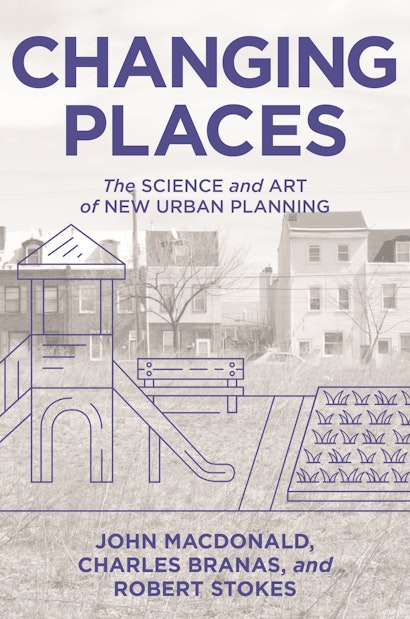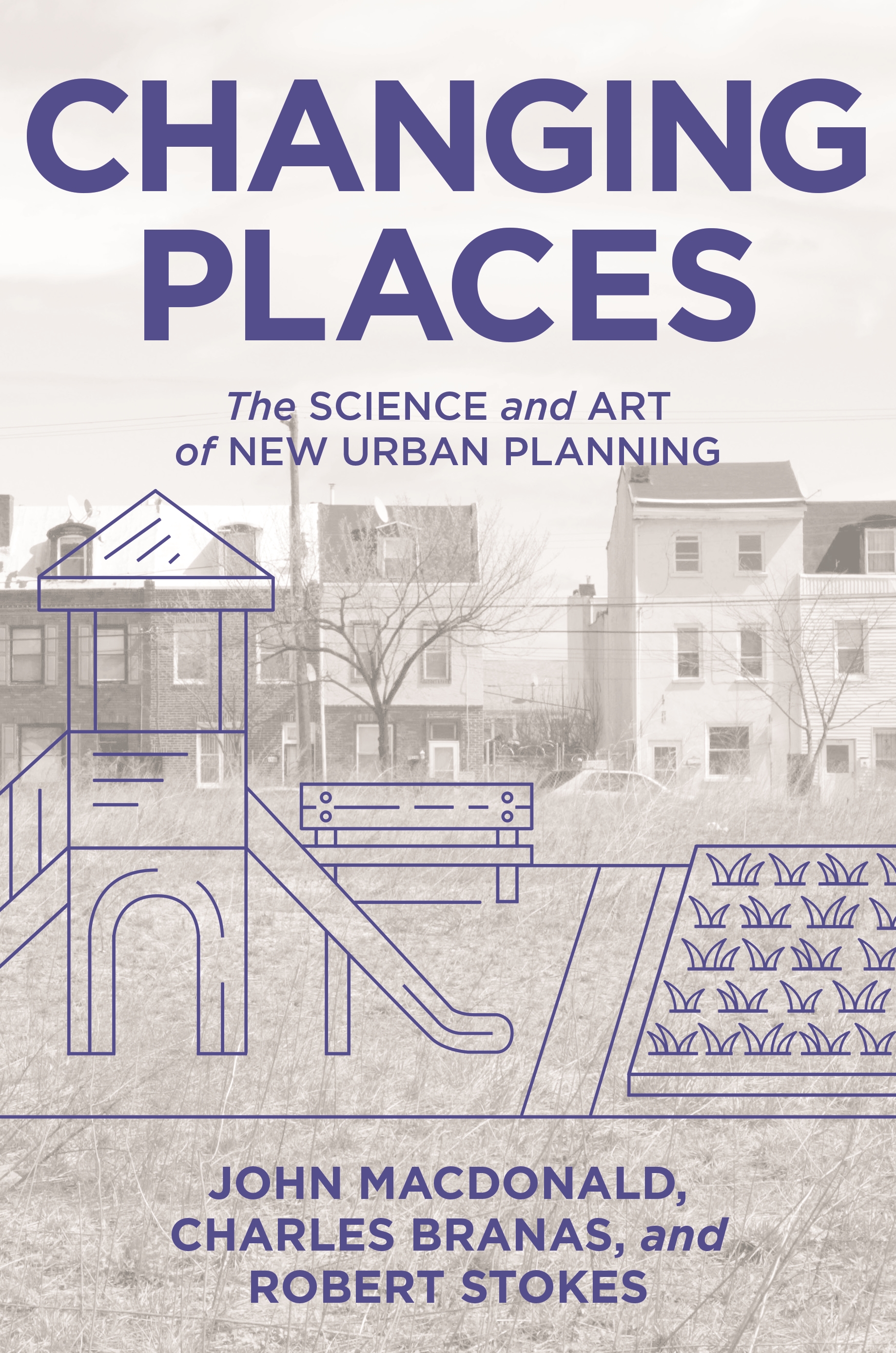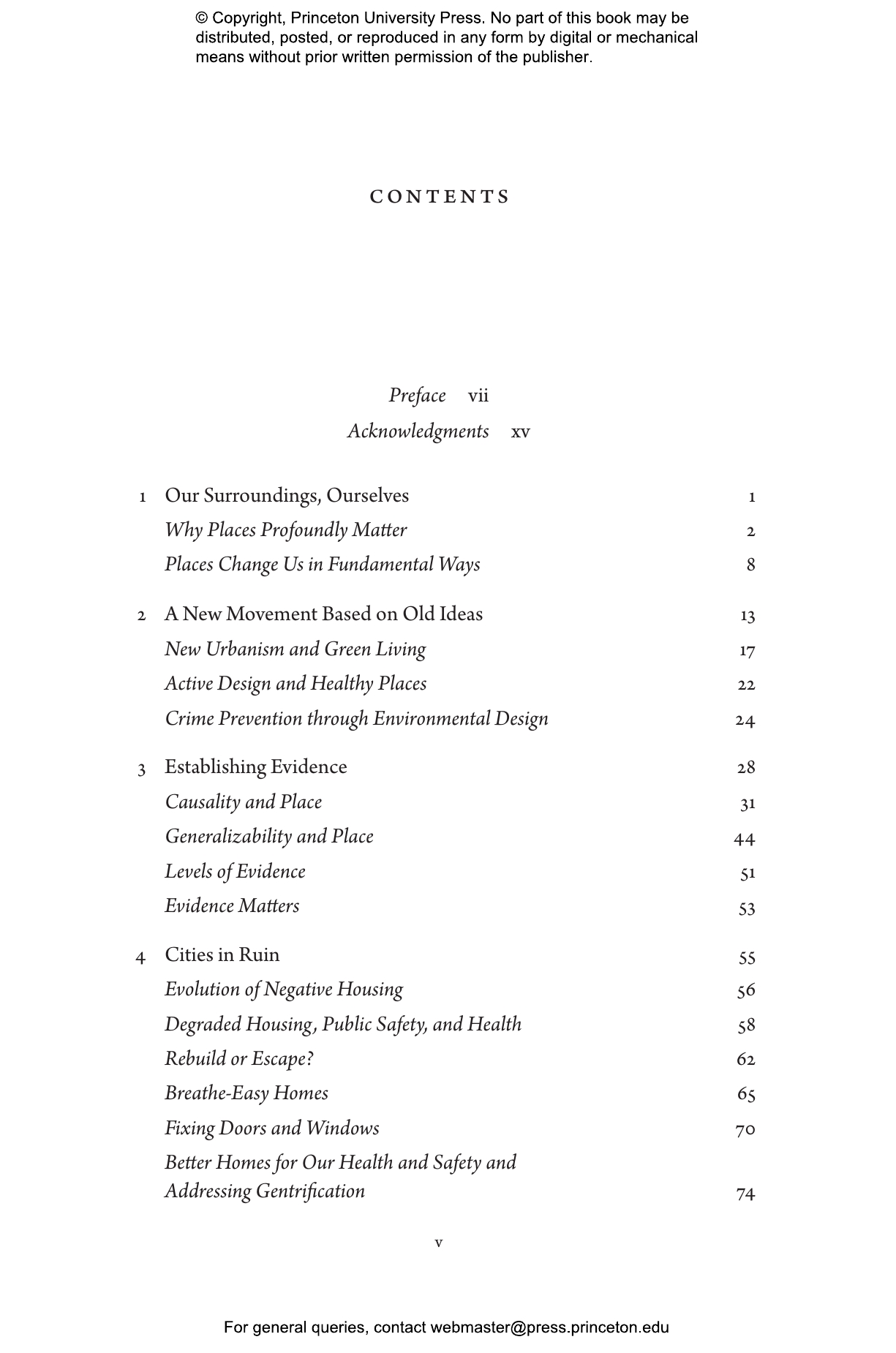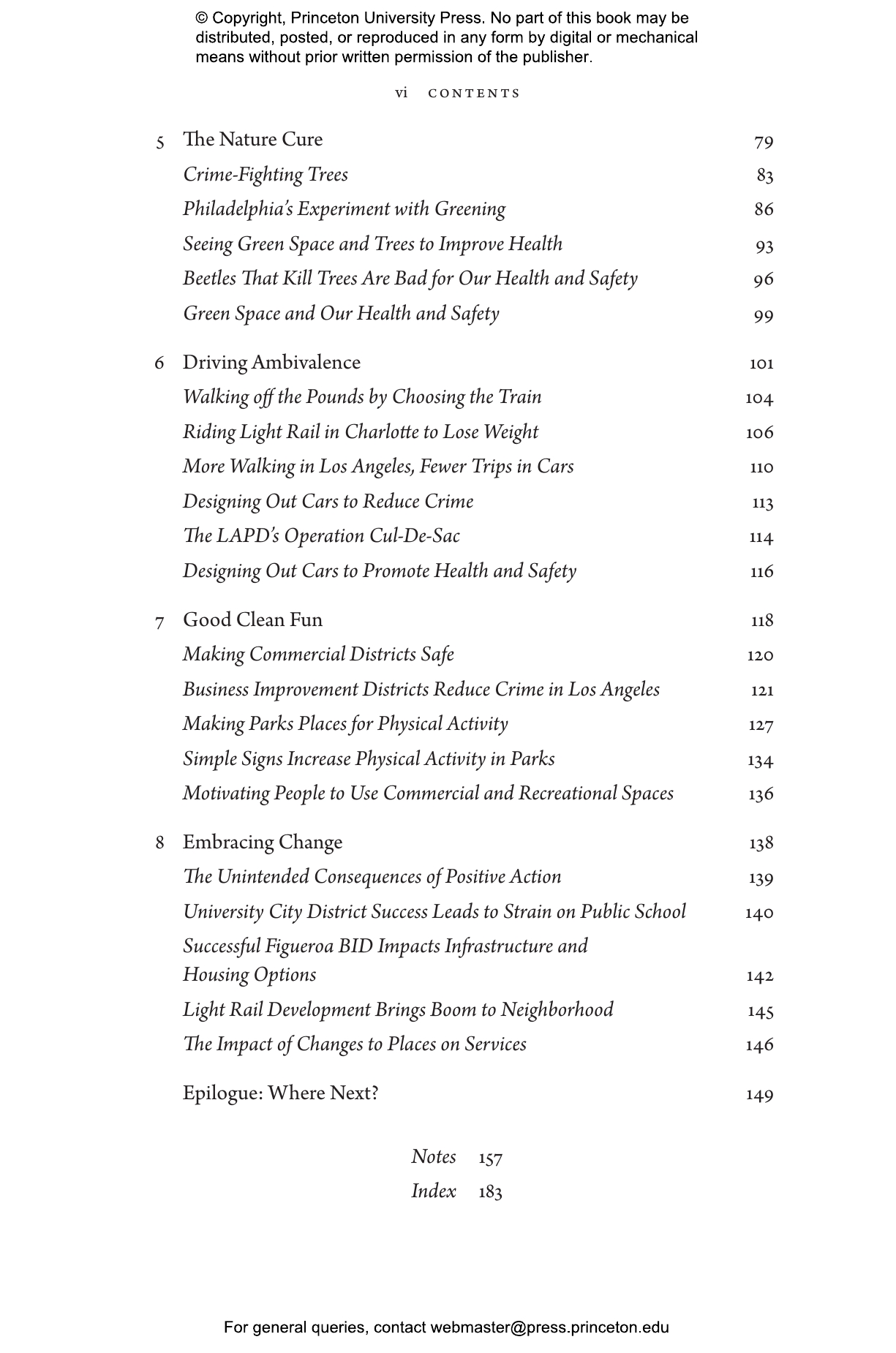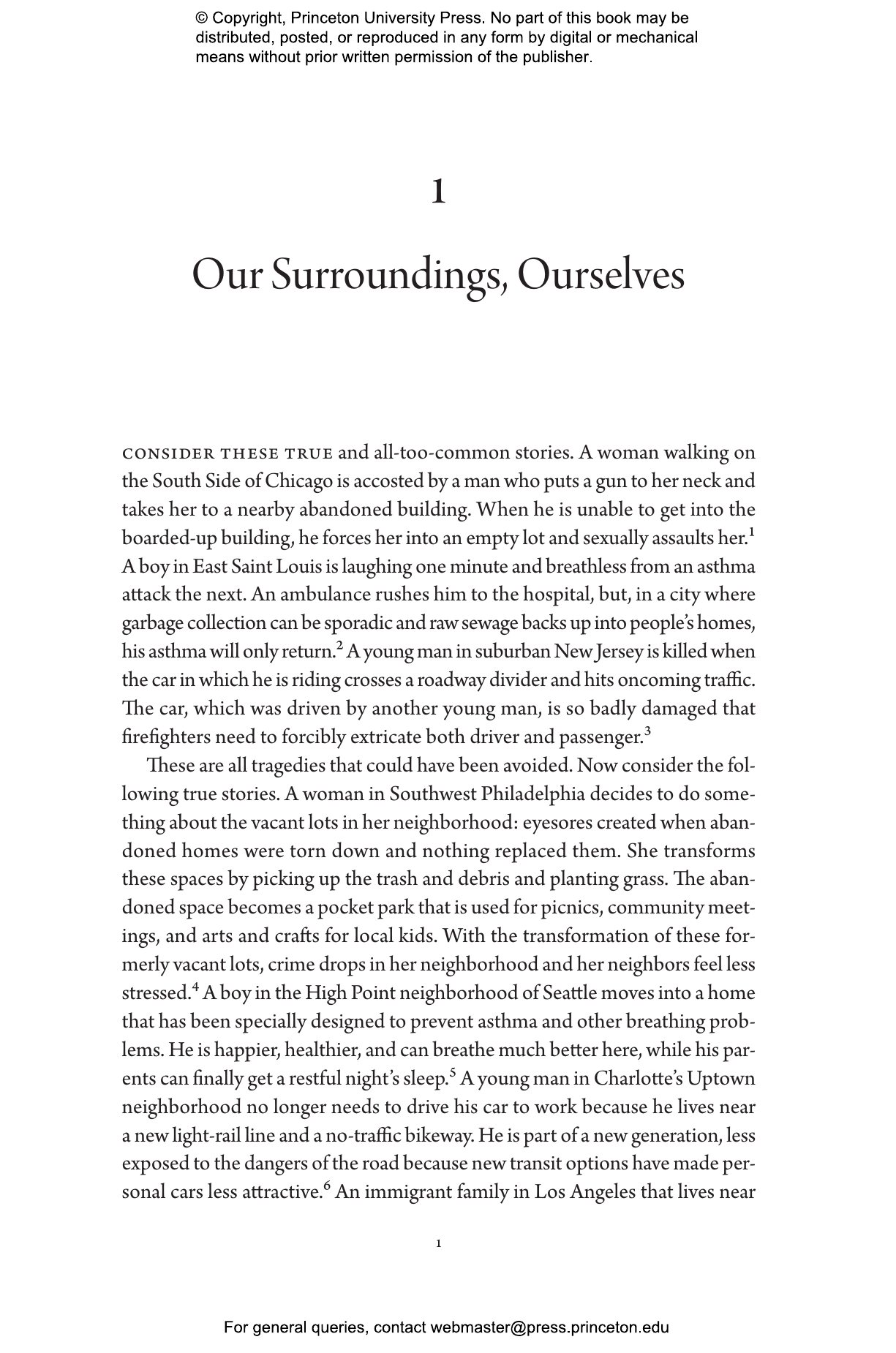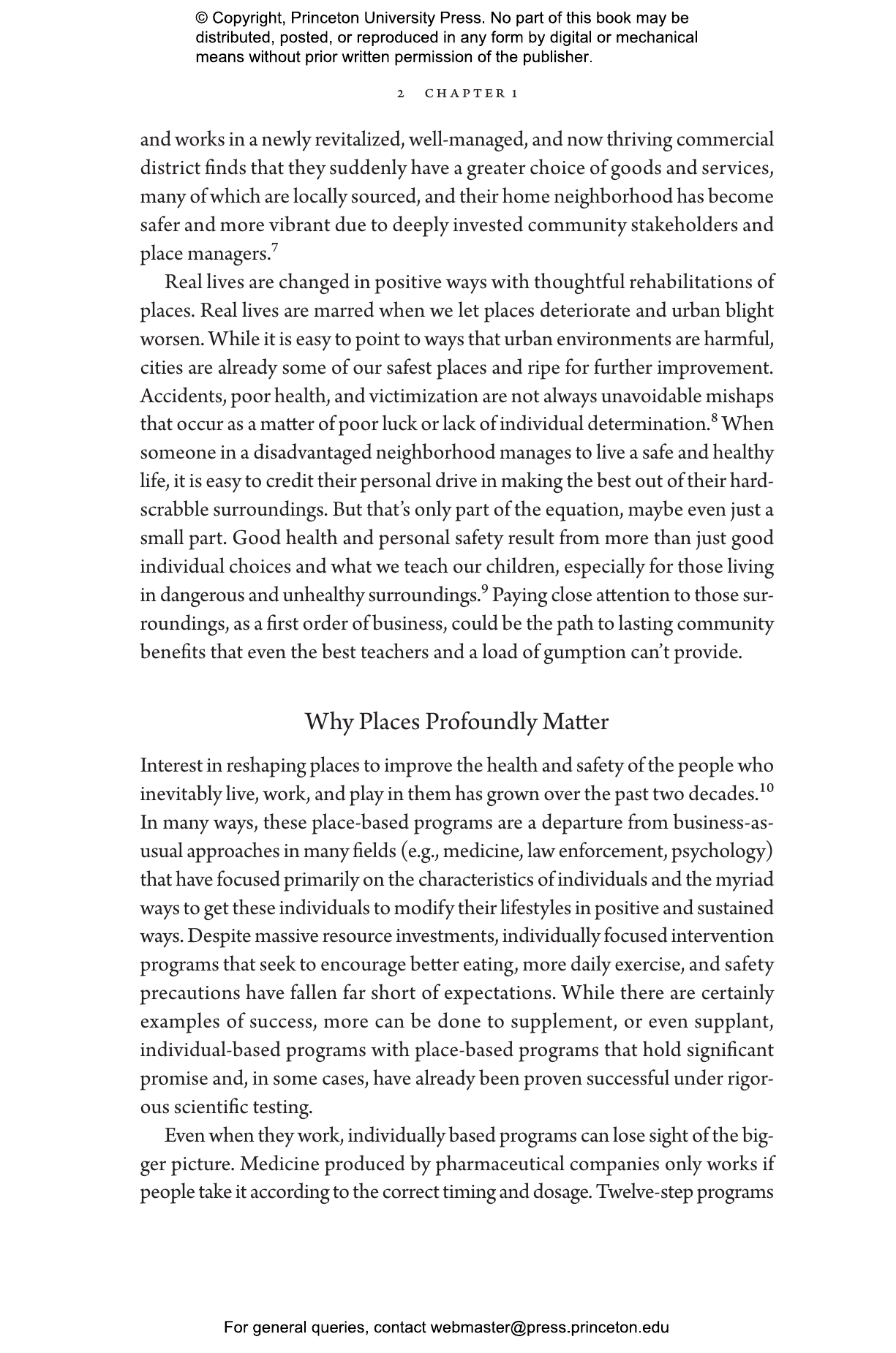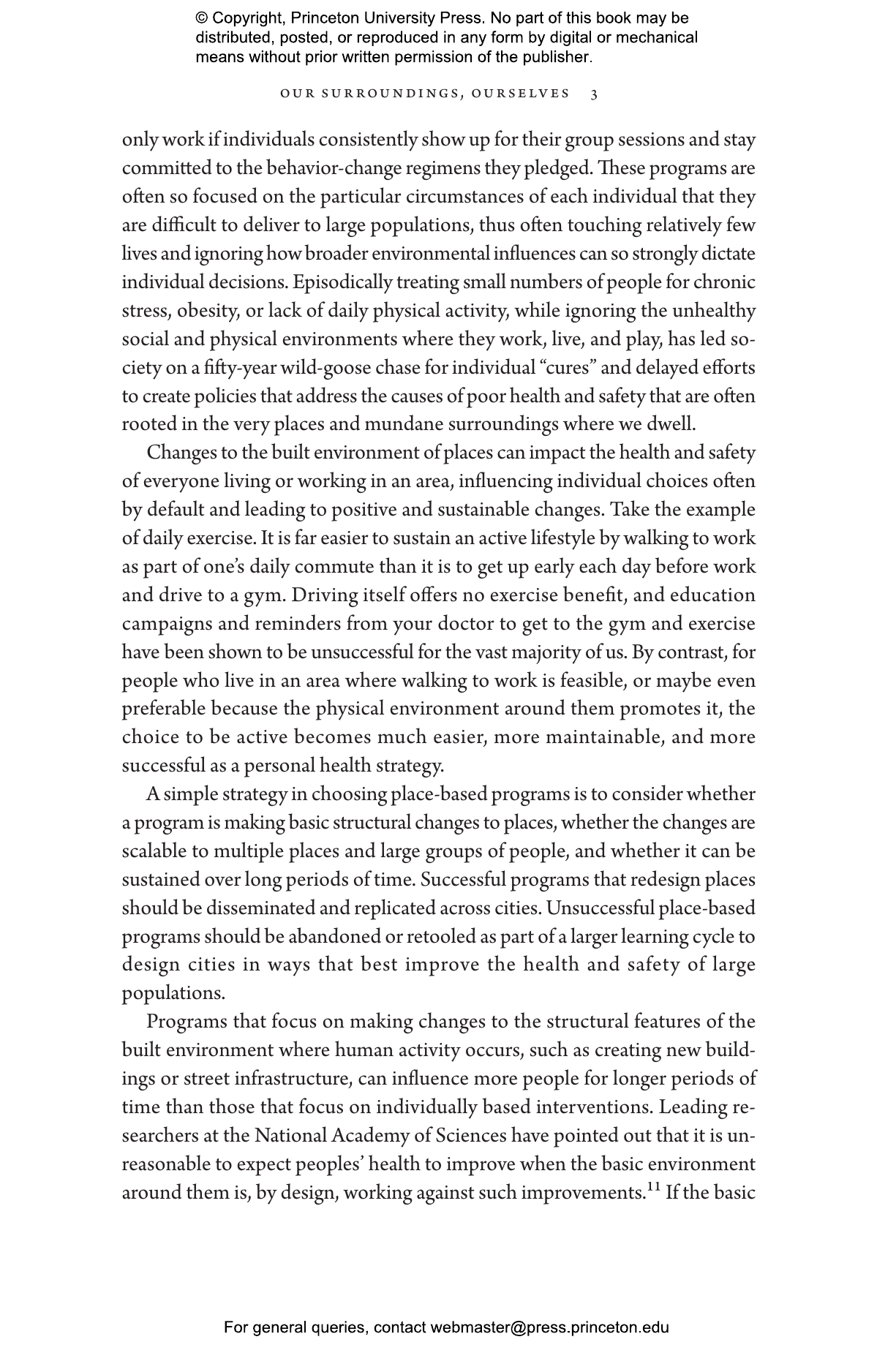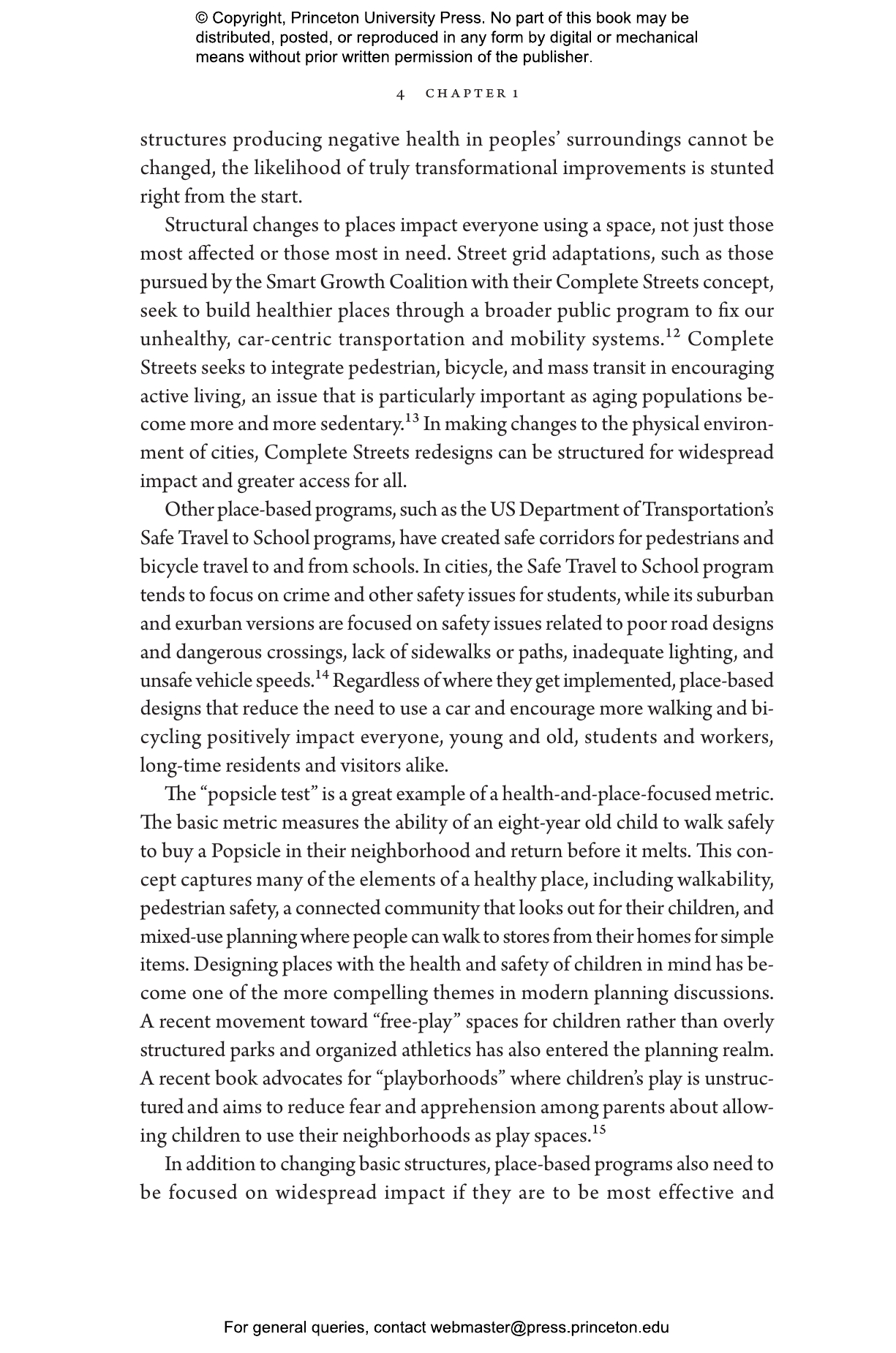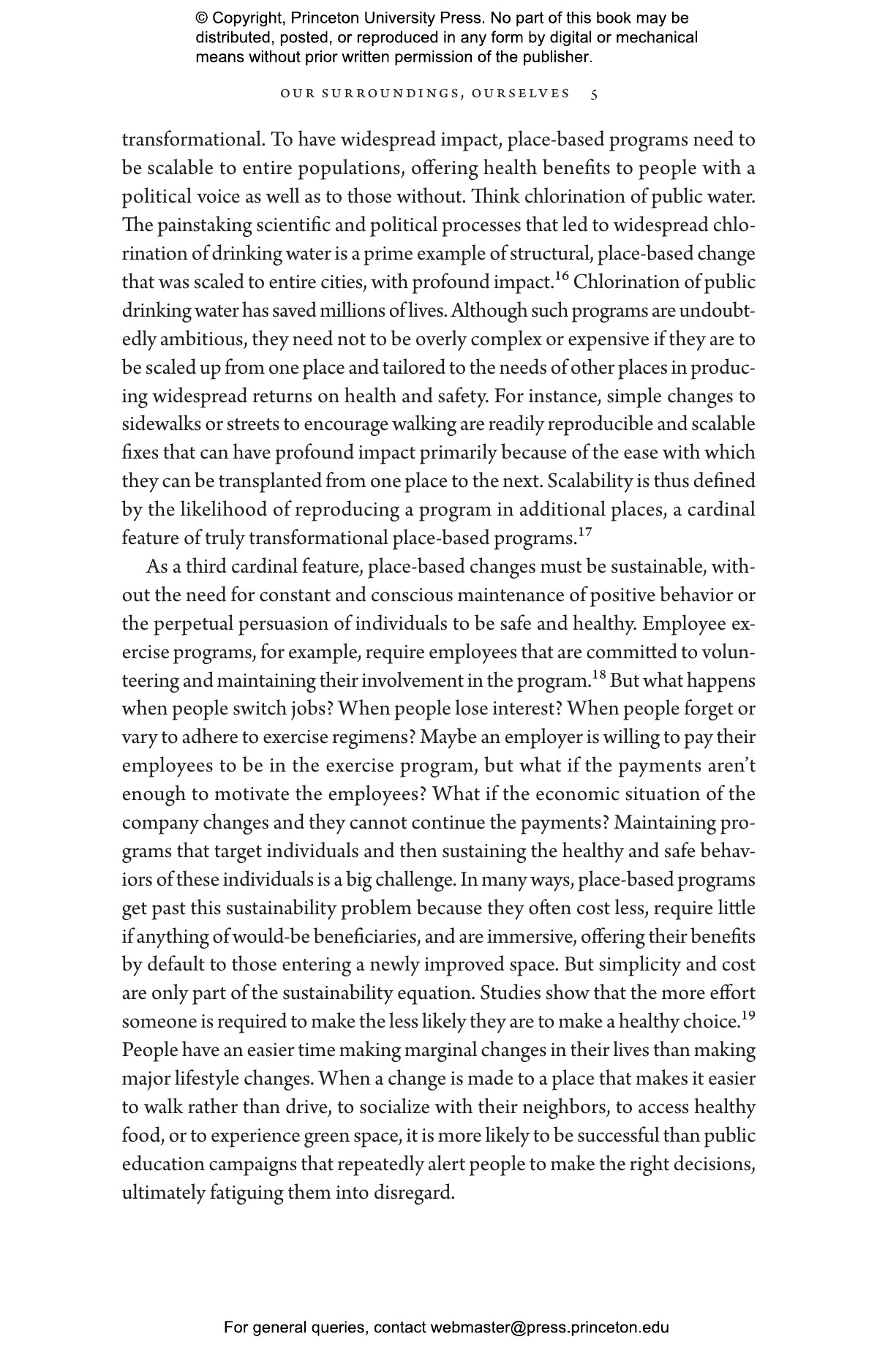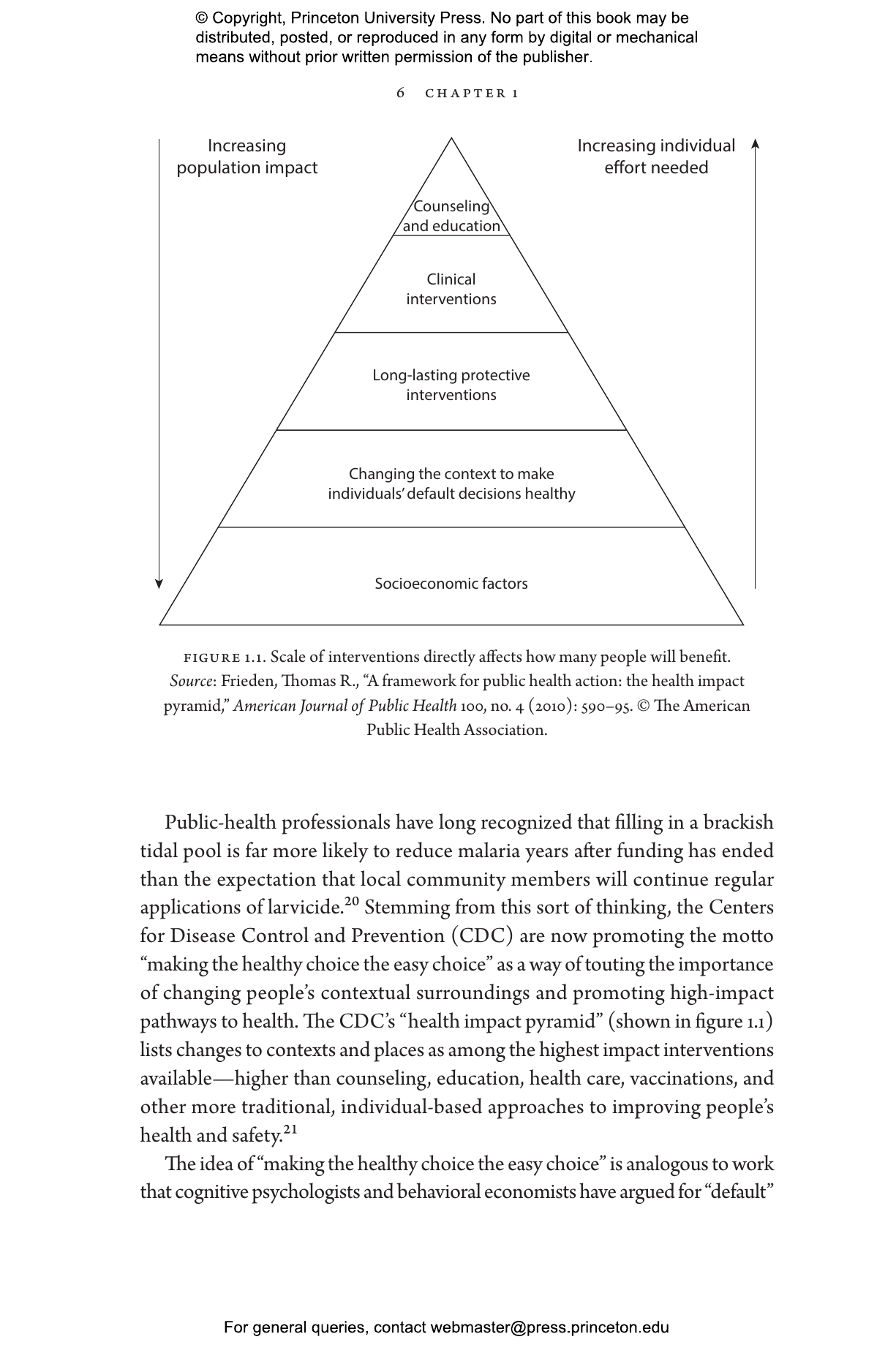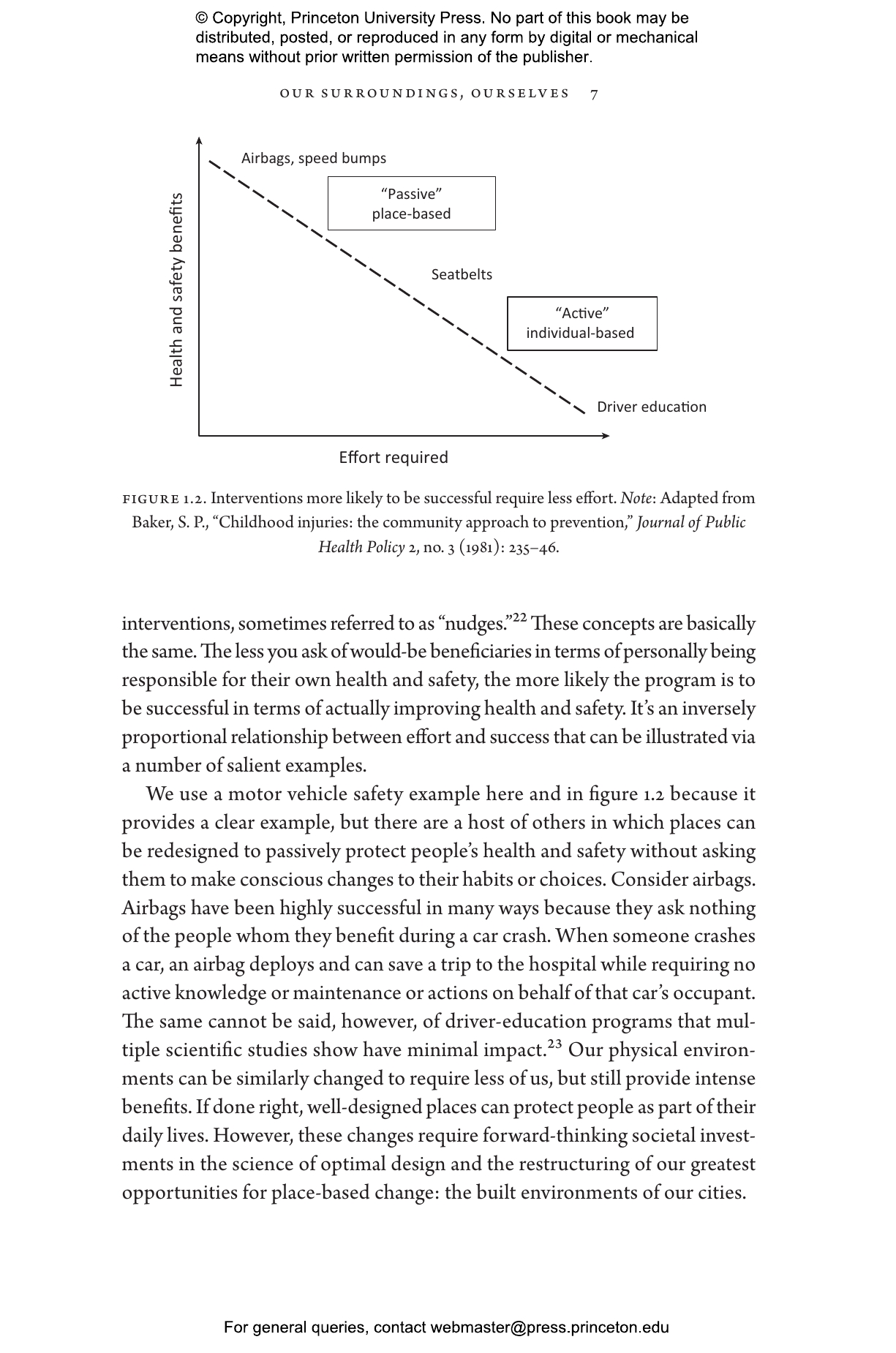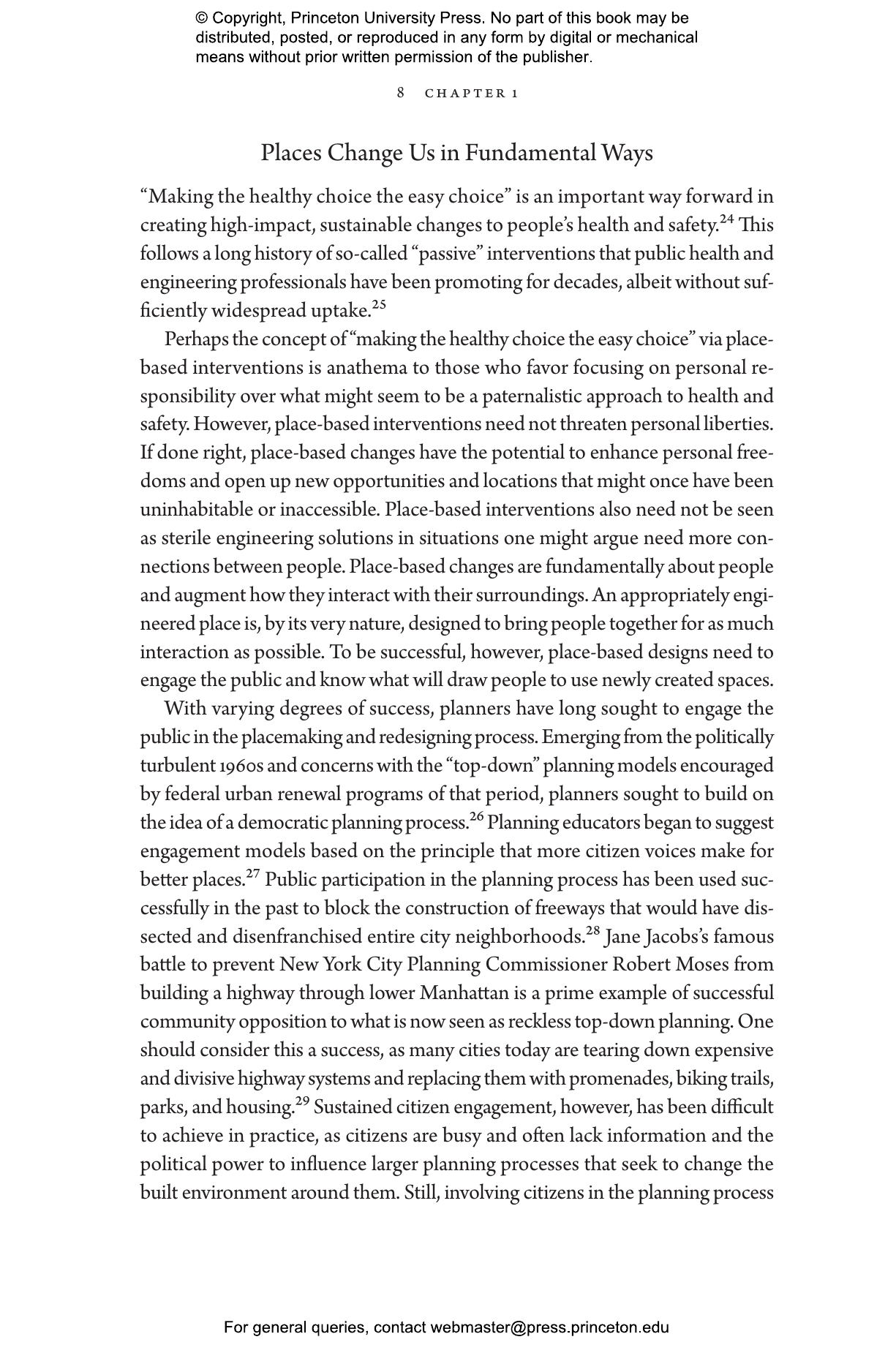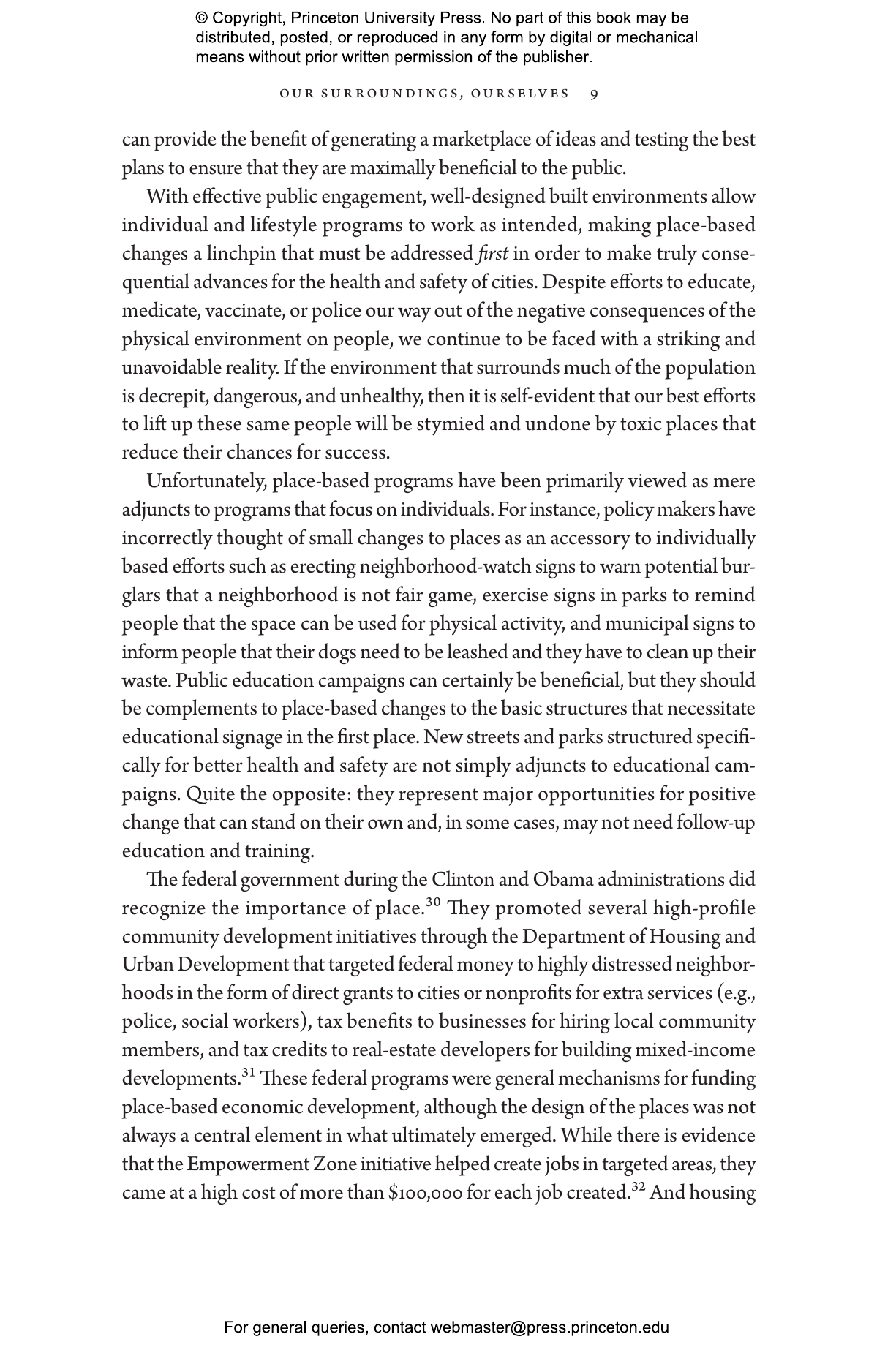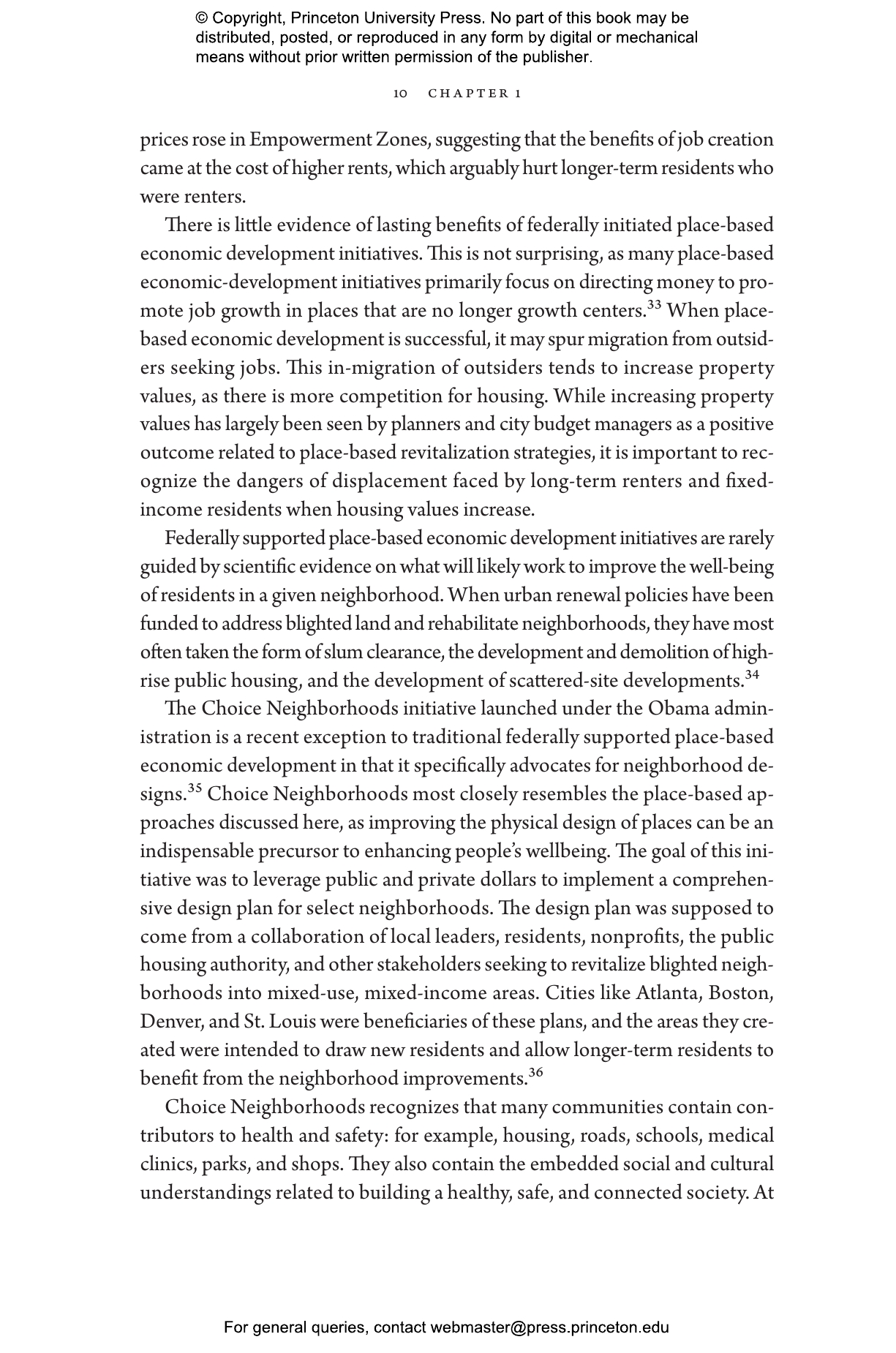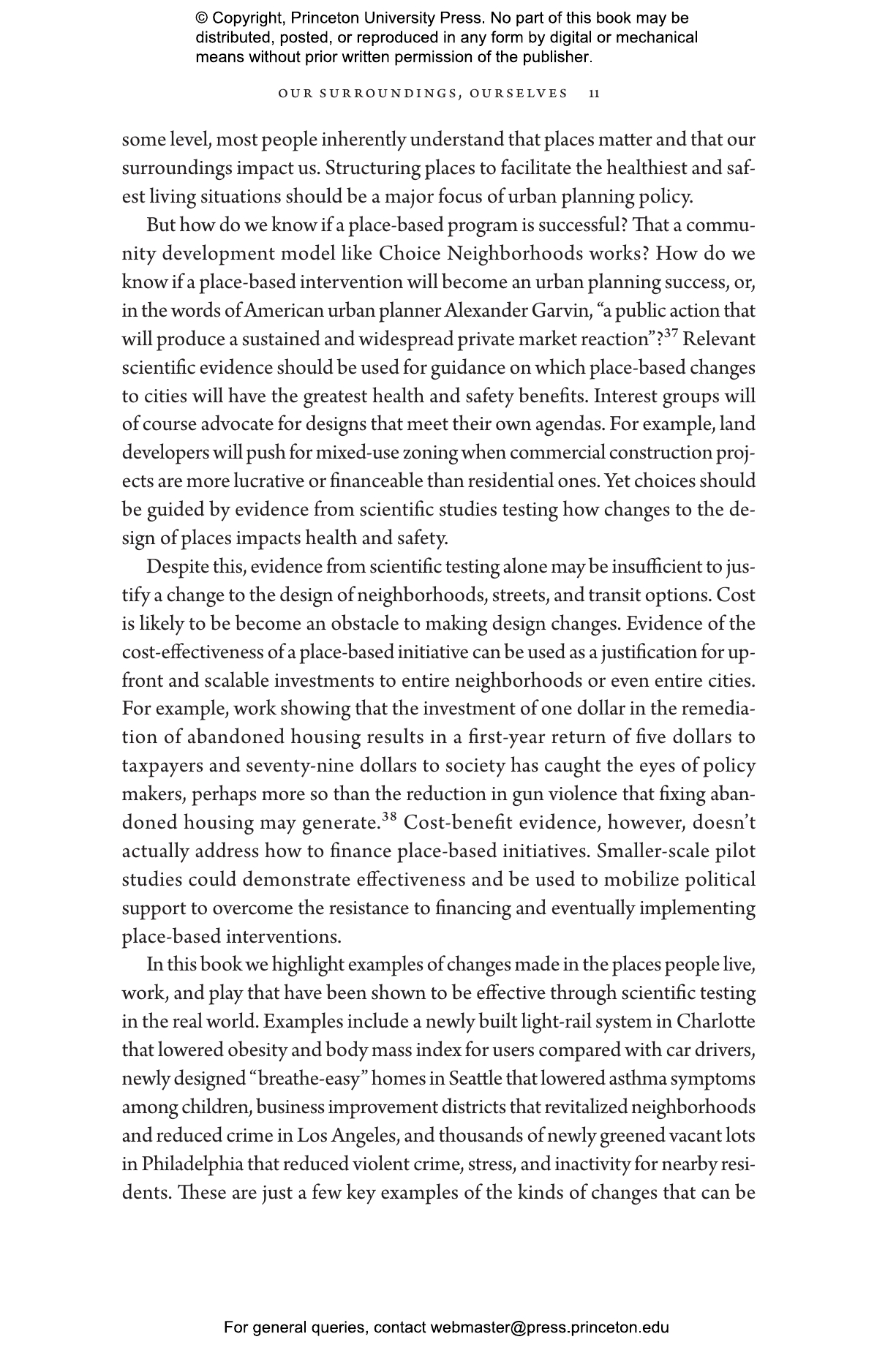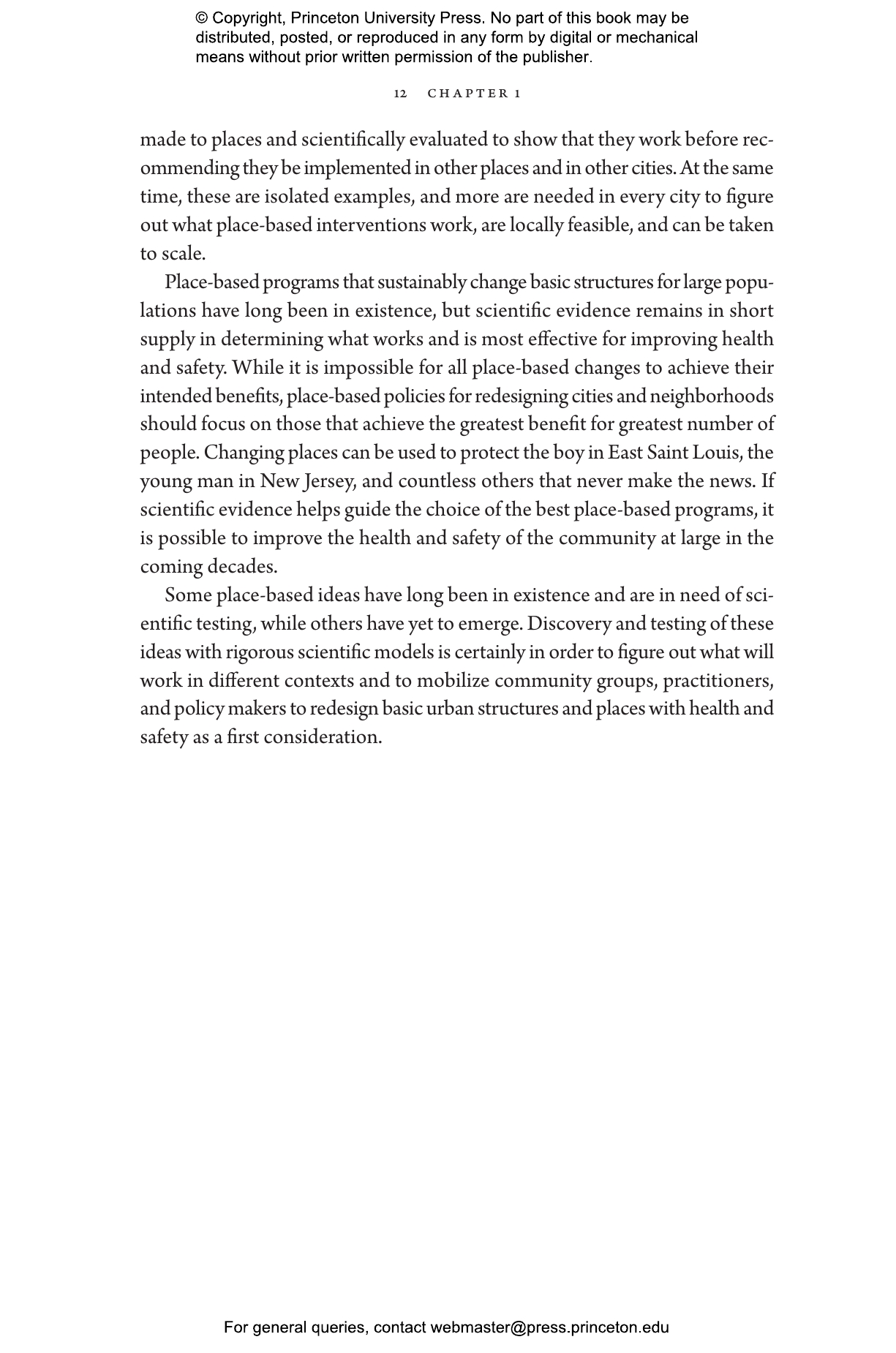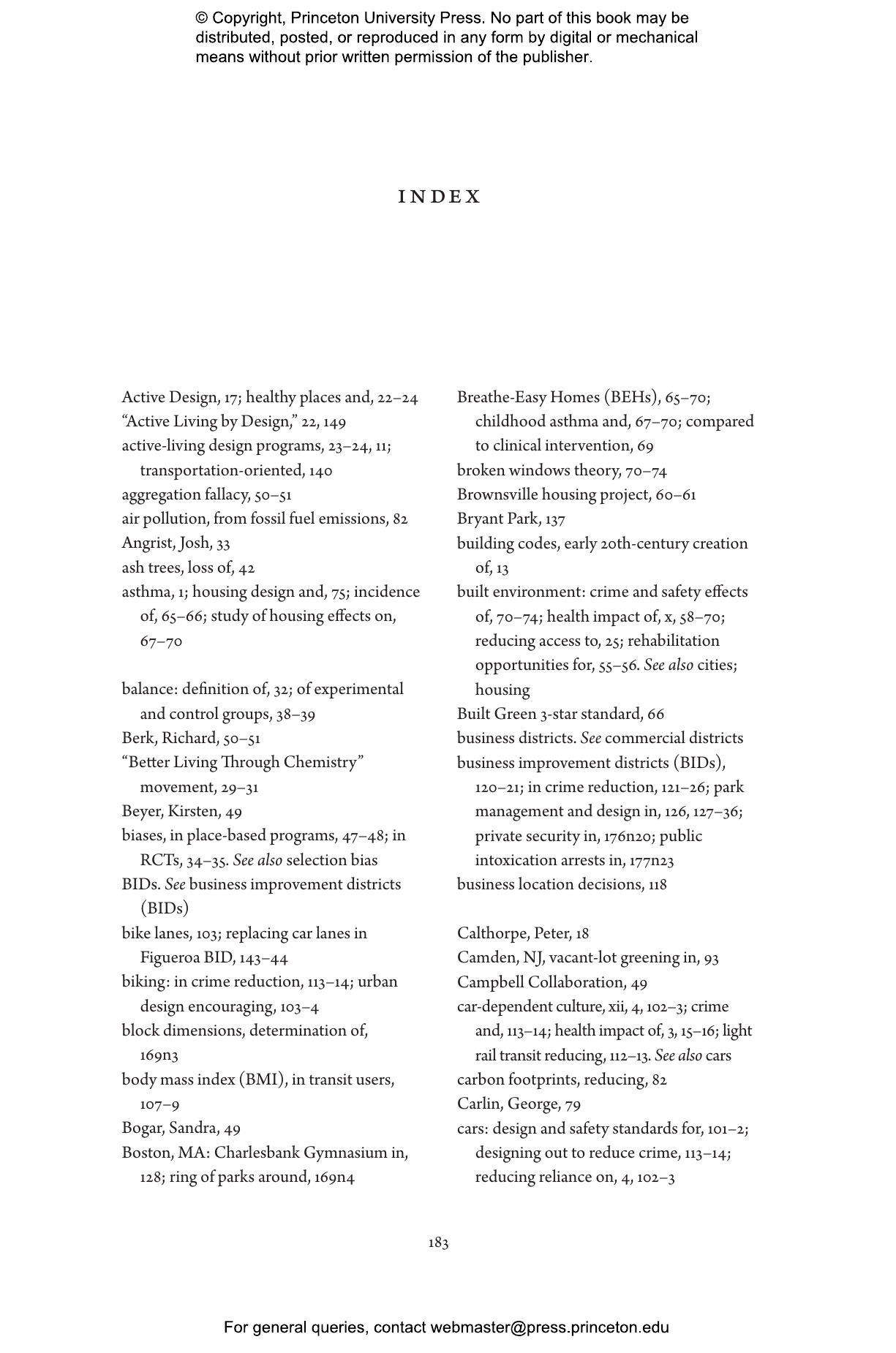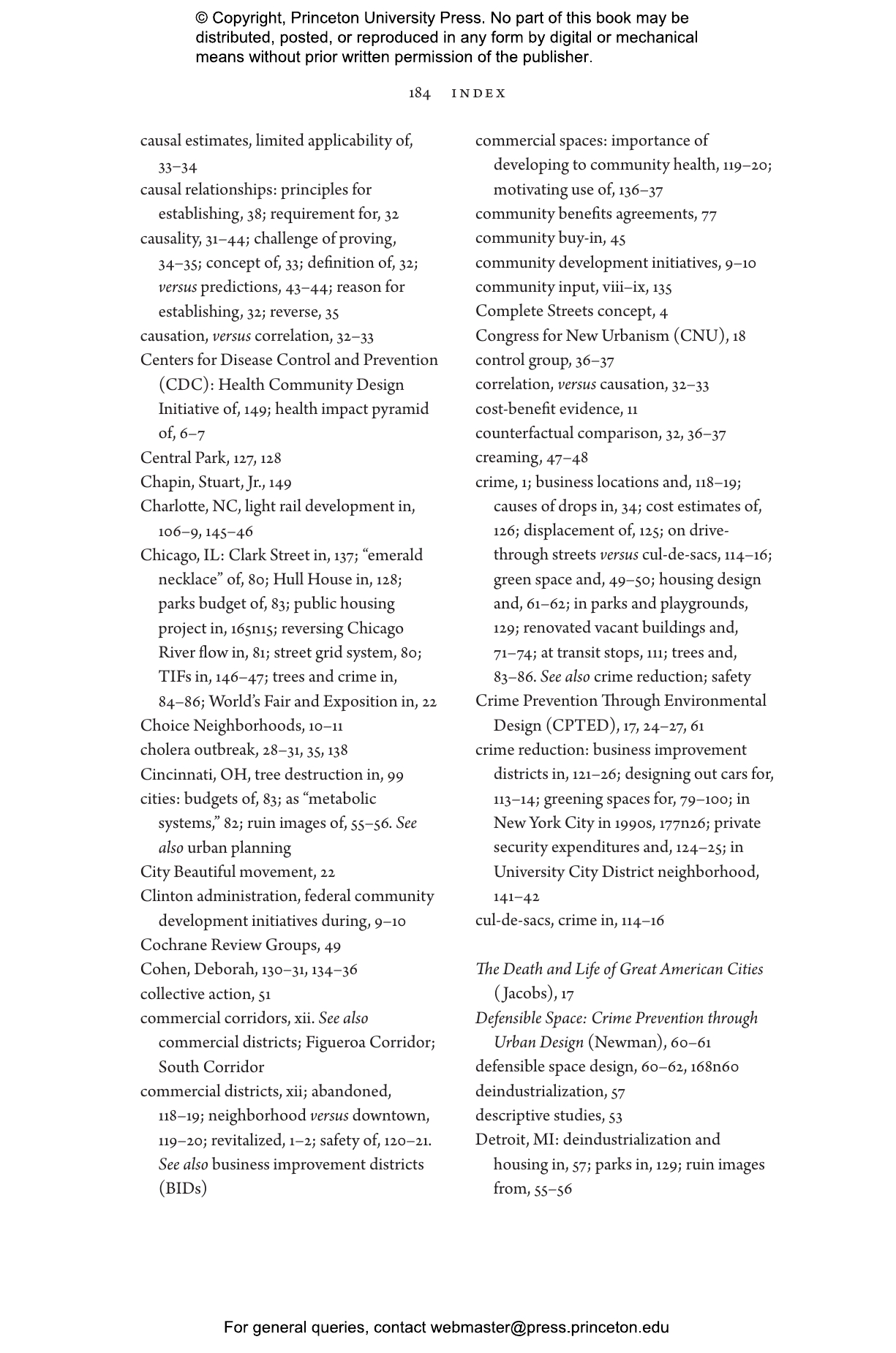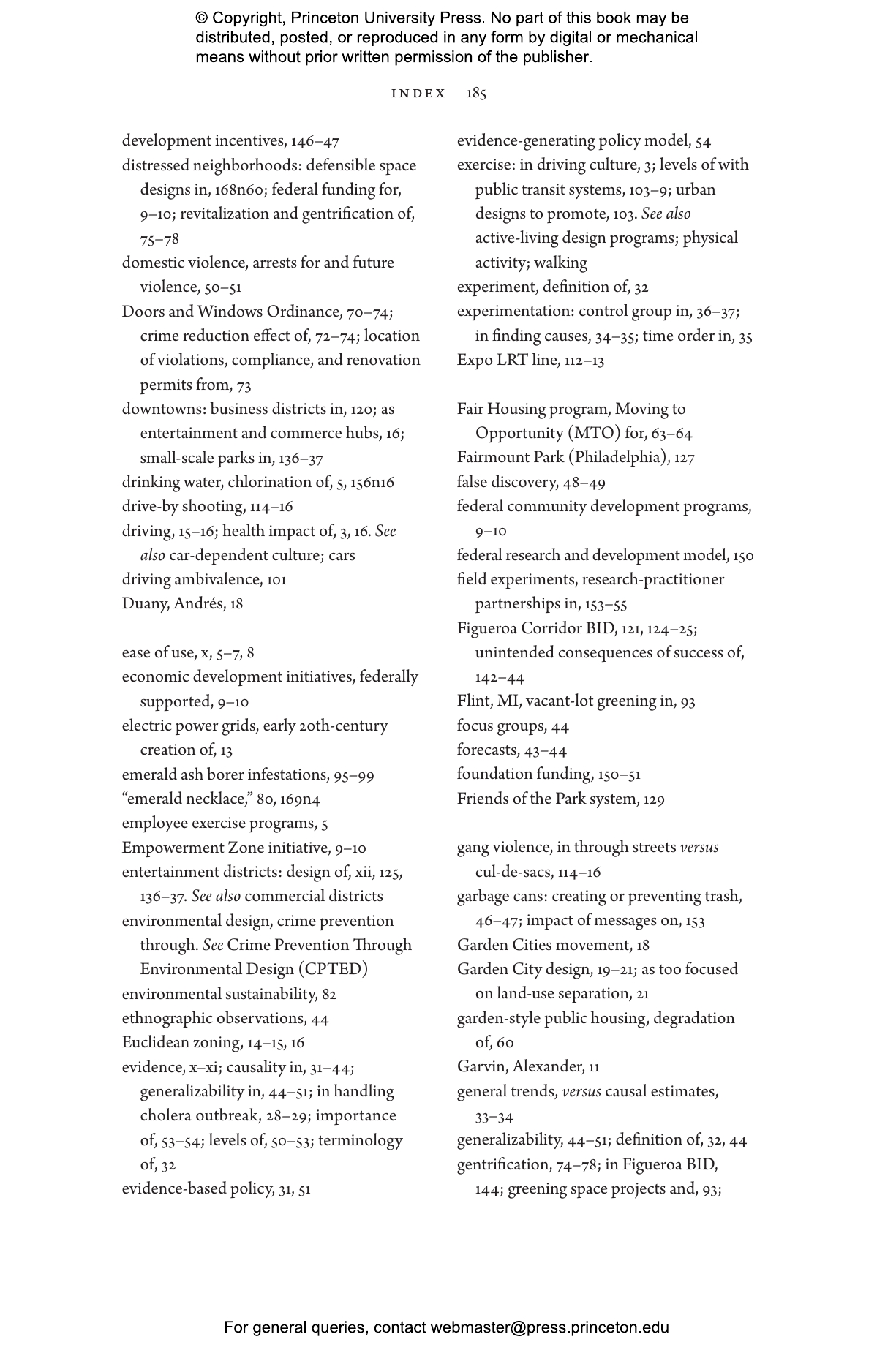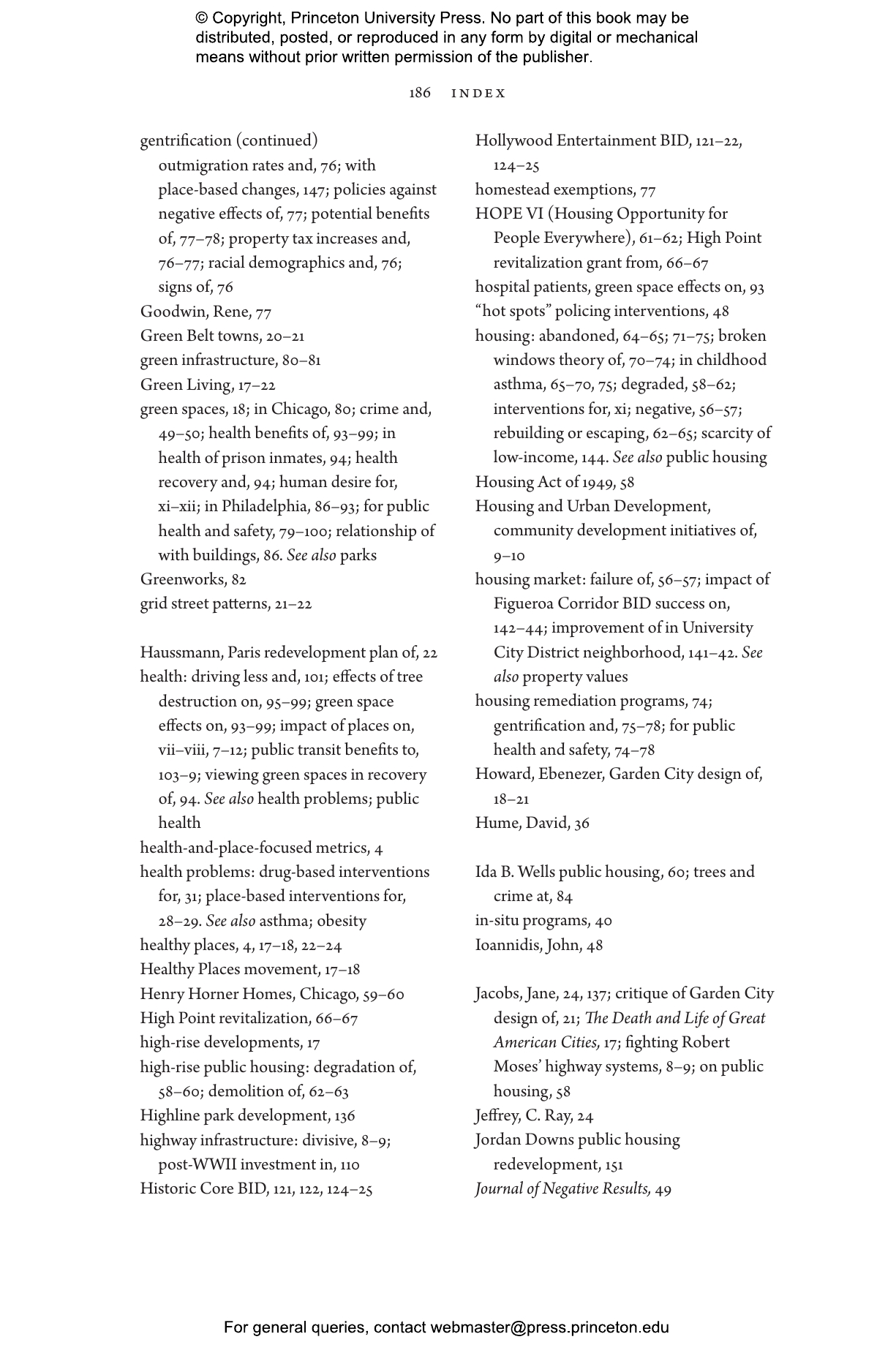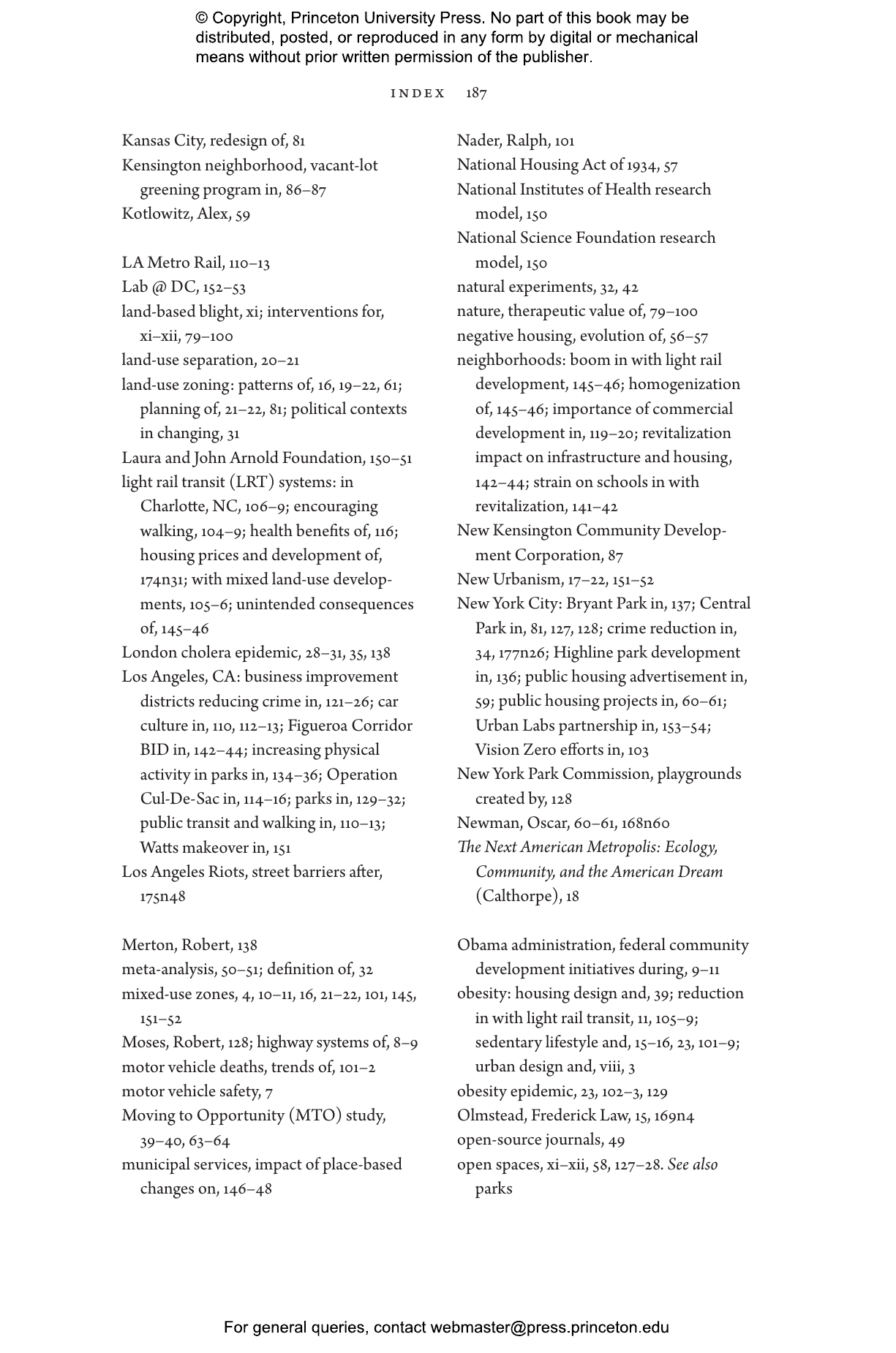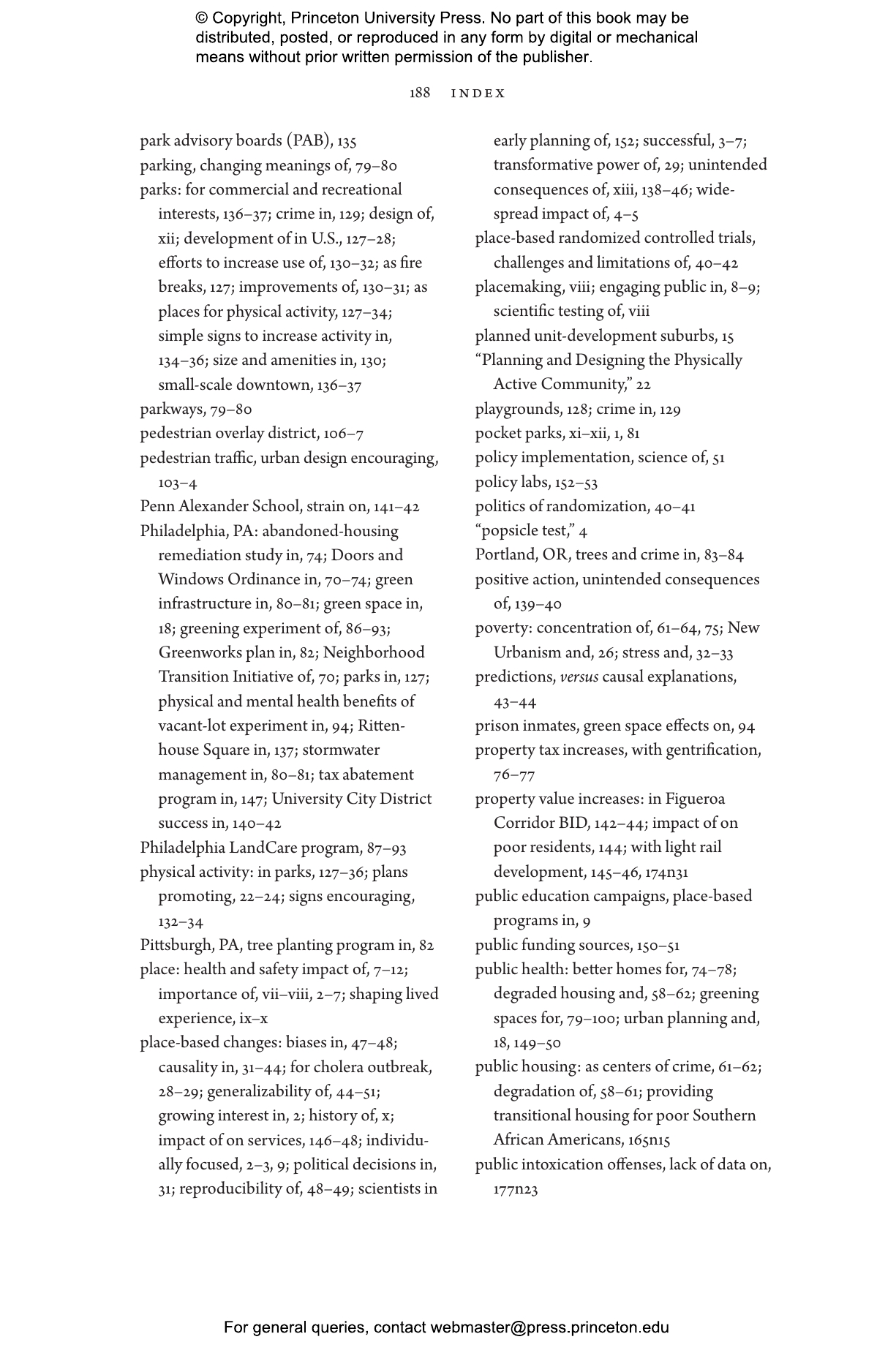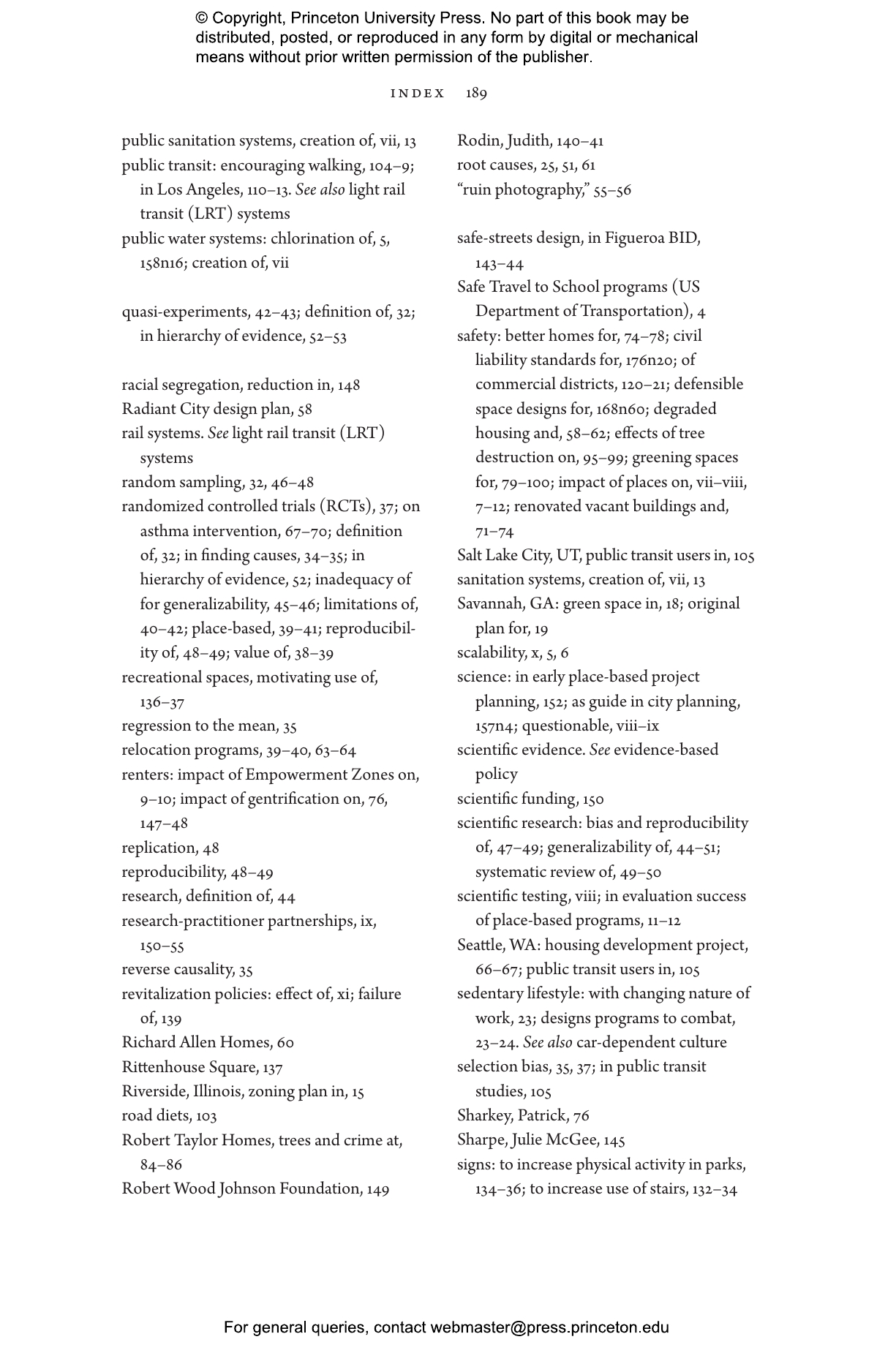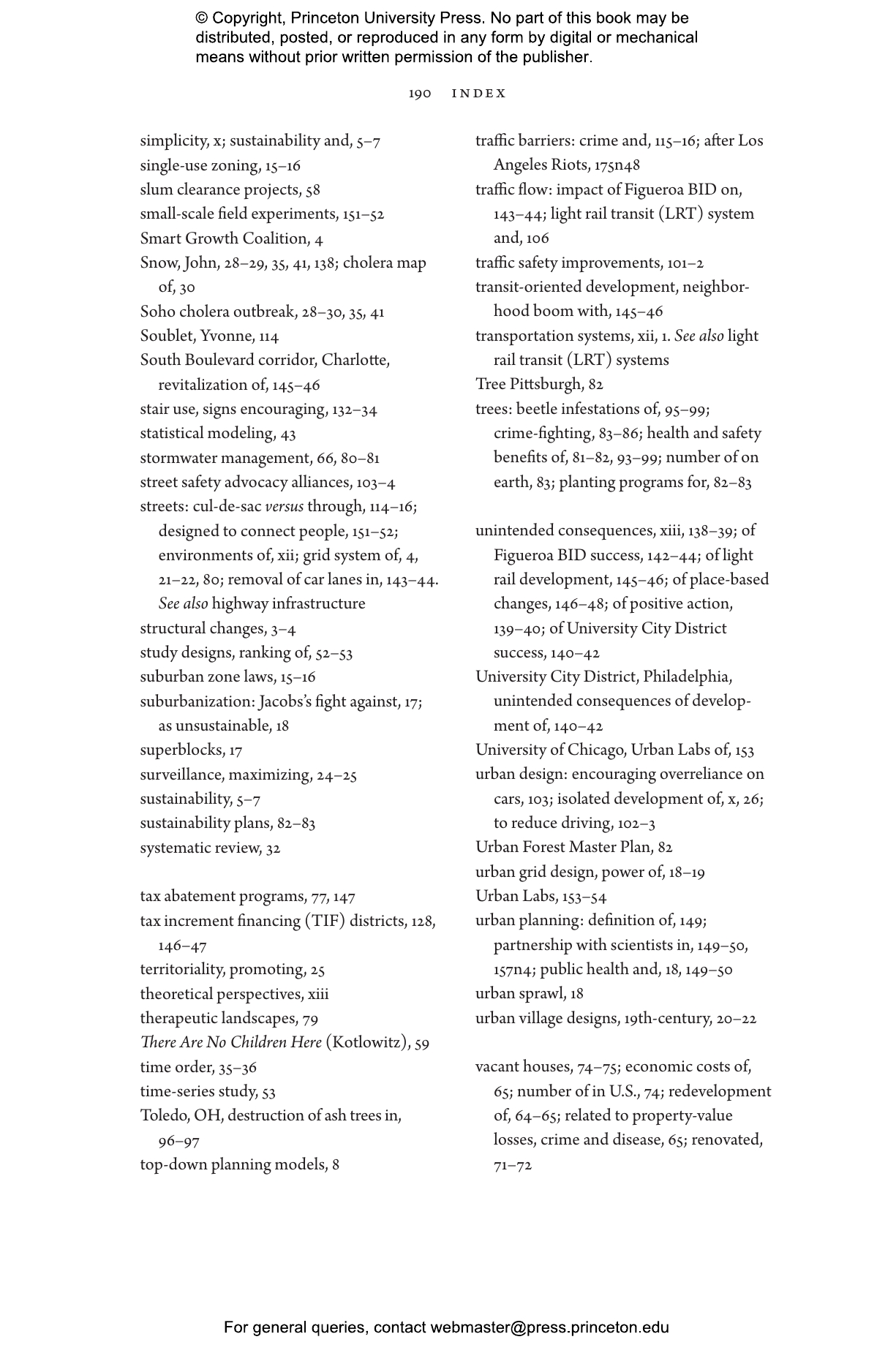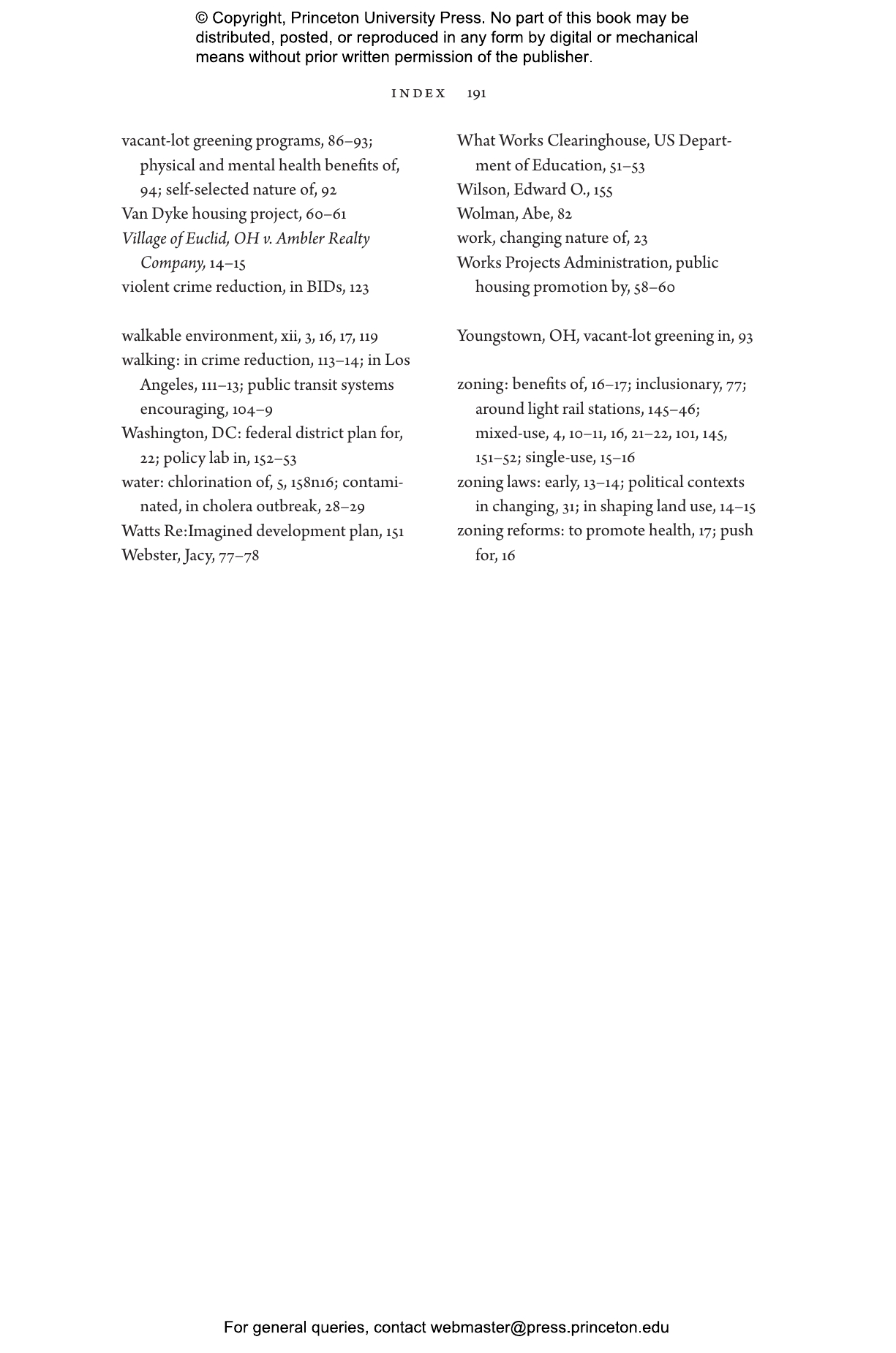The design of every aspect of the urban landscape—from streets and sidewalks to green spaces, mass transit, and housing—fundamentally influences the health and safety of the communities who live there. It can affect people’s stress levels and determine whether they walk or drive, the quality of the air they breathe, and how free they are from crime. Changing Places provides a compelling look at the new science and art of urban planning, showing how scientists, planners, and citizens can work together to reshape city life in measurably positive ways.
Drawing on the latest research in city planning, economics, criminology, public health, and other fields, Changing Places demonstrates how well-designed changes to place can significantly improve the well-being of large groups of people. The book argues that there is a disconnect between those who implement place-based changes, such as planners and developers, and the urban scientists who are now able to rigorously evaluate these changes through testing and experimentation. This compelling book covers a broad range of structural interventions, such as building and housing, land and open space, transportation and street environments, and entertainment and recreation centers.
Science shows we can enhance people’s health and safety by changing neighborhoods block-by-block. Changing Places explains why planners and developers need to recognize the value of scientific testing, and why scientists need to embrace the indispensable know-how of planners and developers. This book reveals how these professionals, working together and with urban residents, can create place-based interventions that are simple, affordable, and scalable to entire cities.
Awards and Recognition
- Winner of the James Short Senior Scholar Award, Communities and Place Division of the American Society of Criminology
John MacDonald is professor of criminology and sociology at the University of Pennsylvania. Charles Branas is the Gelman Professor and chair of the Department of Epidemiology at Columbia University. Robert Stokes is associate professor and chair of the Master of Public Policy Program in the School of Public Service at DePaul University.
"A great, bracing read for us cultural theorists: the authors really interrogate what evidence means in a complex ecosystem such as a city, as well as what you do with it. The case studies in the rest of the book show off examples of evidence-led interventions, all with apparently proven social benefits: they include large-scale tree planting for health in Philadelphia, light rail ridership fighting obesity in Charlotte and the use of signs in LA parks to make people exercise. The message is a simple one: with the right evidence base, you can make meaningful changes. Like London’s cholera in 1854, you can cure a city of its social ills."—Richard J. Williams, Times Higher Education
"Breaking new ground with a menu of smart policy options, the authors present a wealth of evidence that changing places can have causal effects on many aspects of city life. We would be wise to take heed. Science, not anecdotes, and environment, not individuals, provide a path forward to designing our cities to be safer and healthier."—Robert J. Sampson, Harvard University, author of Great American City: Chicago and the Enduring Neighborhood Effect
"Place matters, and this important book lays out the best scientific research establishing exactly how and why. Changing Places is essential for everyone interested in cities, and it's a must-read for anyone—scholar, citizen, or political official—who wants to improve them."—Eric Klinenberg, author of Palaces for the People: How Social Infrastructure Can Help Fight Inequality, Polarization, and the Decline of Civic Life
"This book makes a case for the power of places to shape human behavior and well-being, and for the potential of government policies to create healthier environments. Changing Places provides compelling evidence that investments in places can improve people's lives."—Ingrid Gould Ellen, author of Sharing America's Neighborhoods: The Prospects for Stable Racial Integration
"The places we live have a huge effect on our health and well-being. This is something health professionals, urban planners, and policymakers neglect but absolutely must take into account. Changing Places presents a new, more scientifically grounded and health-focused kind of urban planning—a playbook for building healthier communities."—Richard Florida, University of Toronto, author of The Rise of the Creative Class
